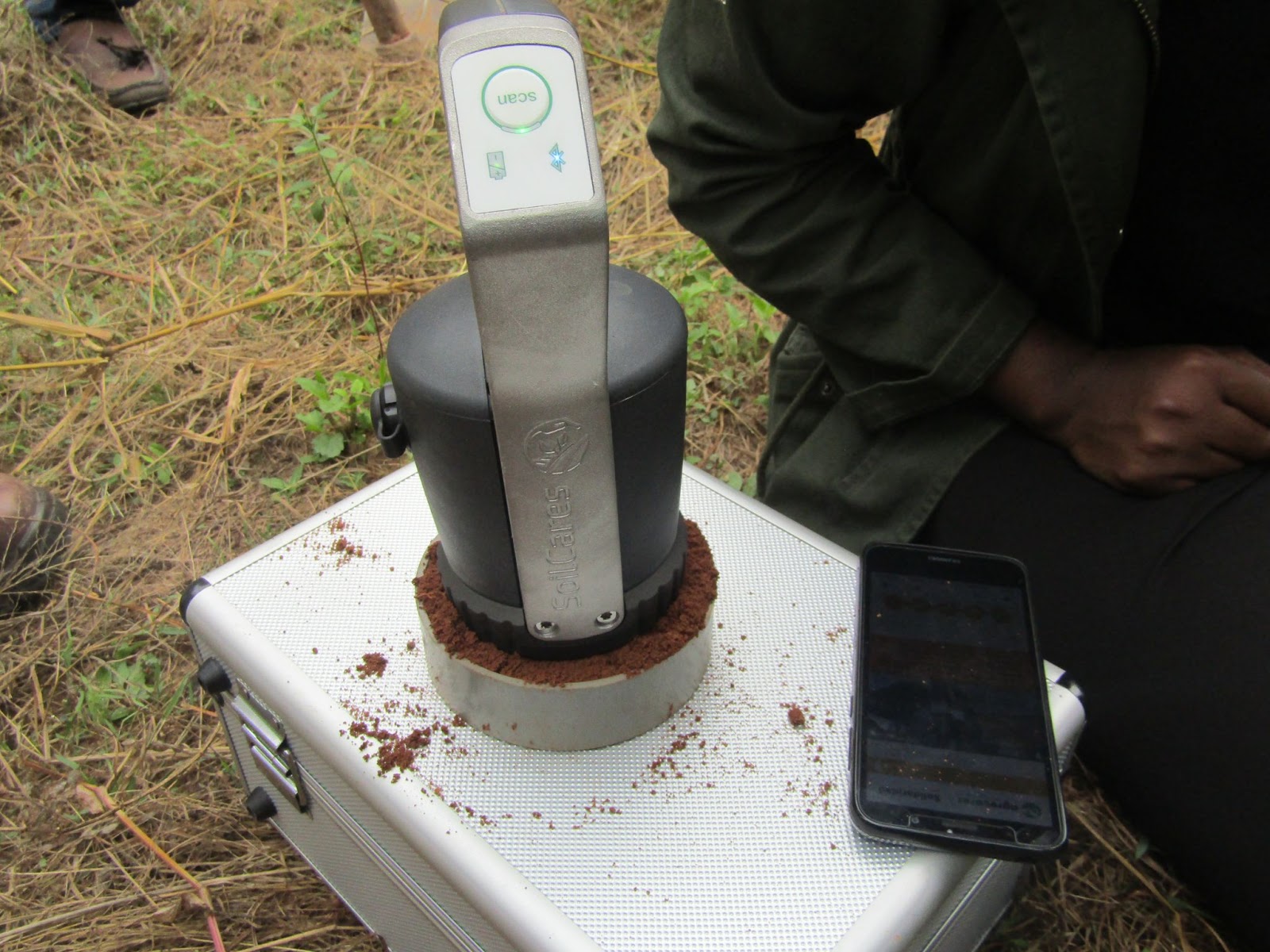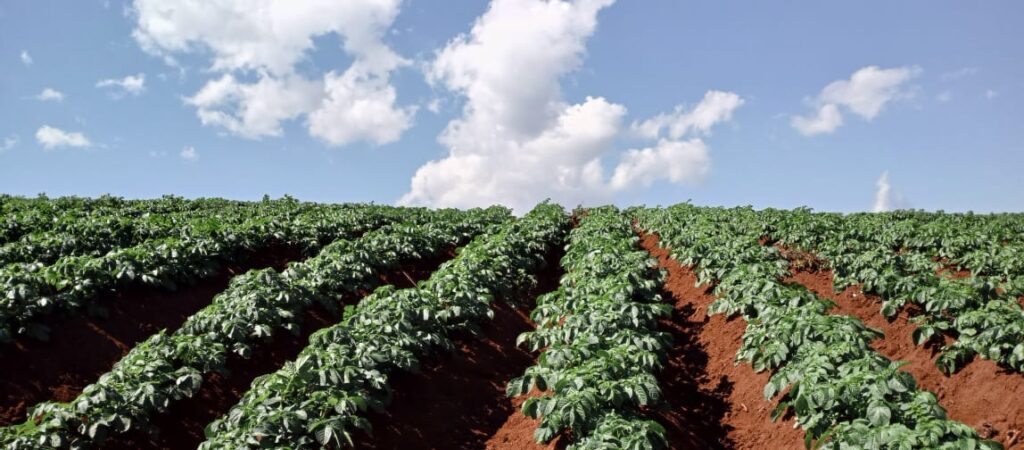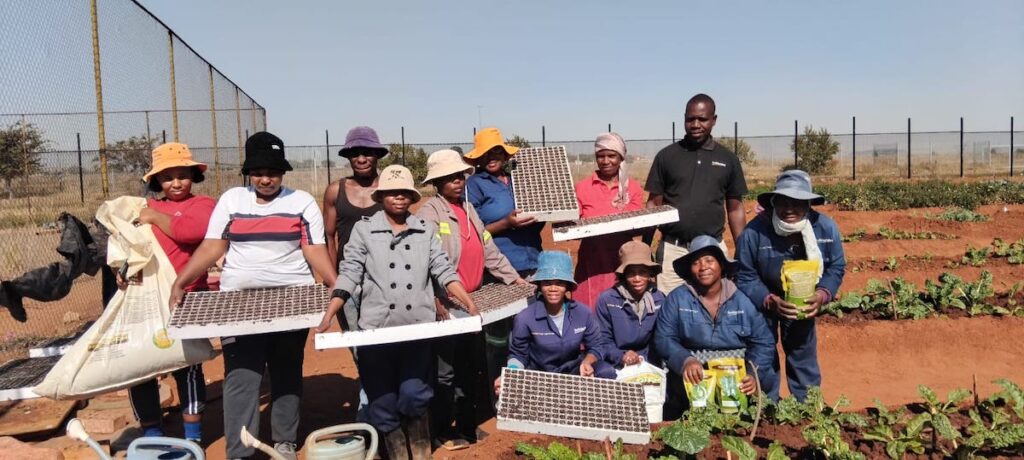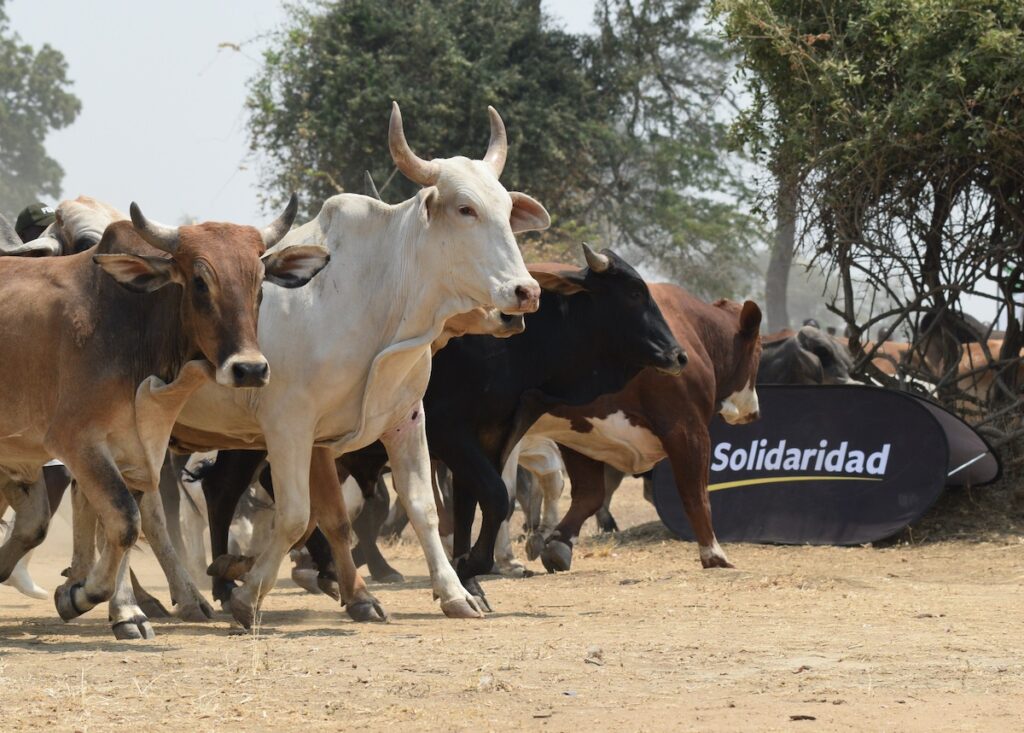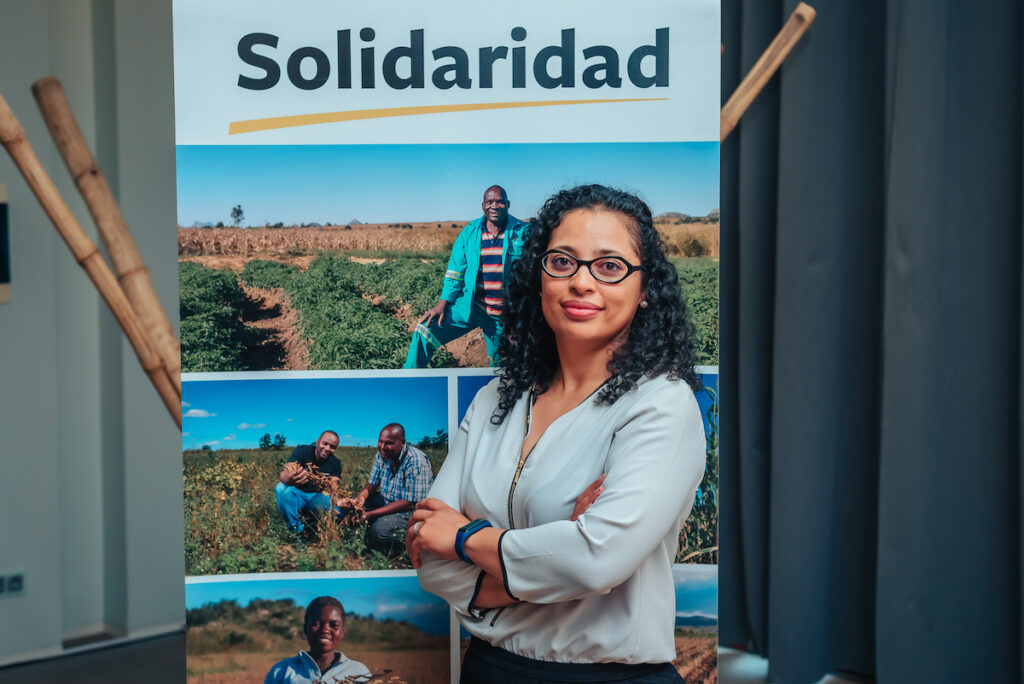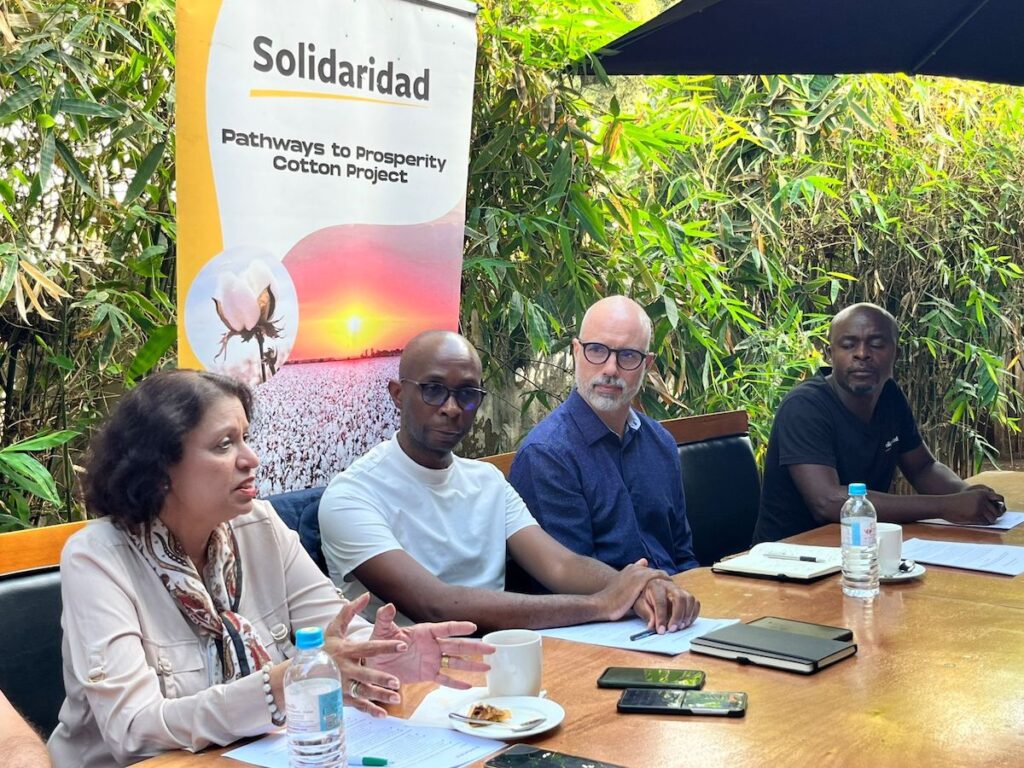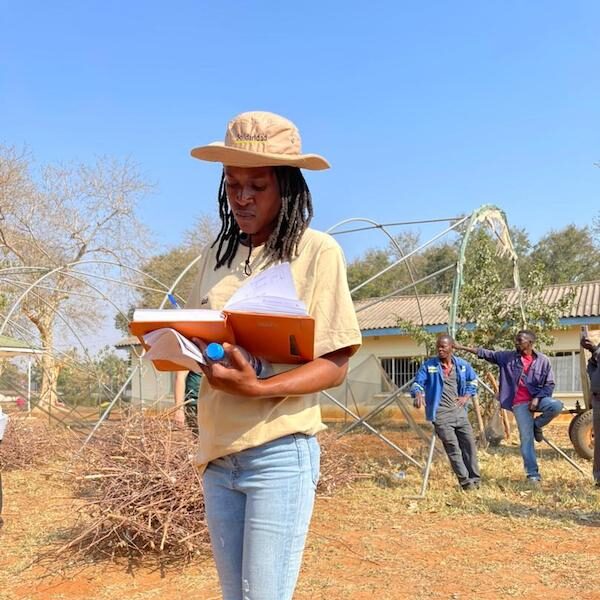Soil is a critical part of thriving agriculture. It provides the necessary nutrients for crop growth and promotes water retention, drainage, and root oxygenation. However, not all soils are suitable for growing crops. Soil can be infertile or degraded due to poor mineral, organic matter, air, and water distribution. Sixty-seven percent of agricultural lands are degraded in Africa alone, with 490 million hectares showing erosion and declining vegetation. Therefore, farmers must improve their soil management practices to prevent soil erosion and increase food production. While regular soil testing can help improve soil health, it is typically inaccessible and too expensive for smallholder farmers. Moreover, farmers have limited access to correct information to remedy deficiencies, leading to incorrect or insufficient Agro-input use that adversely affects soil health, productivity, and local ecosystems.
To help smallholder farmers better manage their soil, Solidaridad has launched a post-revenue, pre-profit start-up social enterprise called Kvuno Soil Labs. The company sets up soil labs in rural districts to provide soil testing services to smallholder farmers. Each lab has between two and seven staff members who use soil scanners to collect soil samples and return results within 48 hours of collection. The scanner stays in town, analysing numerous samples a day. The test costs $5, and the reports are easy to understand, with information beyond the standard nutrient content analysis. After the test, the farmer can expect data on the carbon content, pH balance, conductivity, nitrogen, phosphorus, and potassium. In addition, the smallholder farmer also receives recommendations on the best crops for their soil and the best local fertiliser recipes to give them good harvests.
With over 3,500 conducted soil tests, farmers reported a 29% increase in the quality and quantity of their yields.
One farmer in Chongwe district (Zambia) who has been producing tomatoes for years heard about our soil-testing services through a local radio programme. He had his soils tested and followed the fertilizer recommendation plan from the soil-test report. When he came to the lab, he was able to show us his increase of yield by the number of tomatoes he had harvested and the size of the tomatoes from his farm.
We randomly select farmers who have not done a soil test before and use their farms as demonstration plots. Our project coordinators, Vincent Mofya and Sarah Miti, chose Kelvin Kacha, one of the Solidaridad farmers under our Fruit and Vegetables programme. After the soil test, Kelvin followed the fertiliser recommendation plan and was the only farmer in the Chongwe district to record the largest-sized cabbage head weighing 8.7kgs. Three years ago, Chongwe district recorded the biggest head of cabbage at 5.8kg, and Kelvin broke this record in 2020.
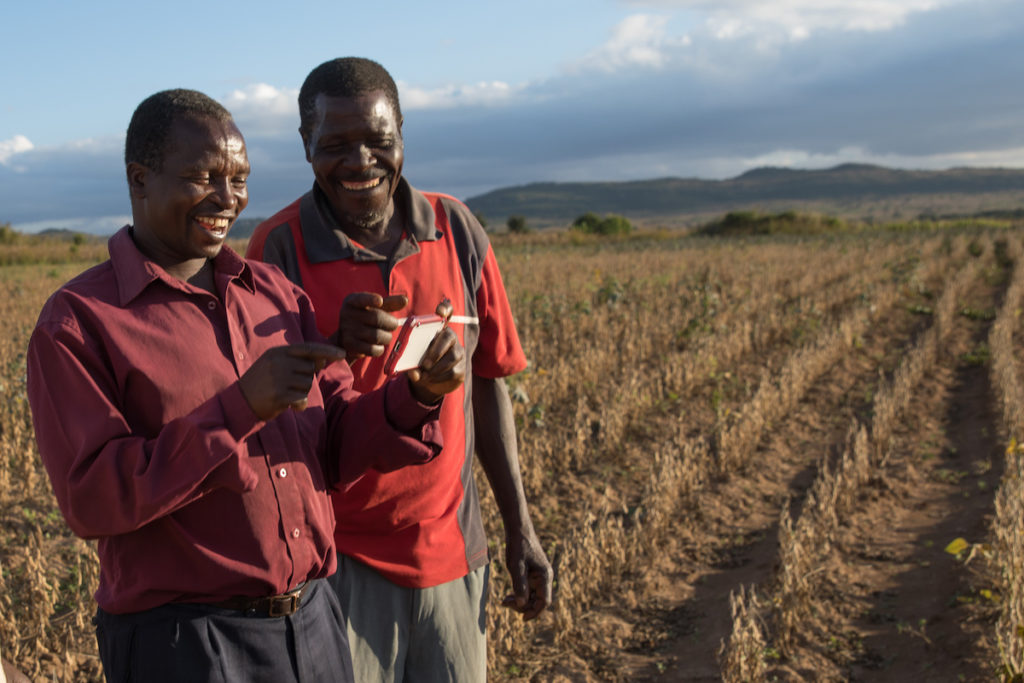
Increasing digital adoption amongst smallholders
The WADI Virtual Assistant enables farmers to easily interact with and access information from multiple sources, including satellites, weather services, soil testing, and logistics.
Walk-in clients are allowed to come and bring their soil samples for testing. Our scanners enable us to test soils everywhere, as long as the country or state has been calibrated. As part of our mission, we can provide low-cost soil testing to every person anywhere in the country. One of our clients works with Development Aid from People to People (DAPP) in Katete. This department is working on revamping school farming blocks to increase food production in the schools. As part of this programme, a senior teacher at Kafumbwe Primary school had said that there had been less productivity on the school block for five years. The administrator from DAAP tested soil samples in our labs to assess the efficiency of our soil-testing services. In turn, he followed through with the fertiliser recommendation plan, and the results were amazing.
Kvuno wants to empower farmers to tend and care for their land. To achieve this, we have made it our mission to provide precise advice to our farmers. Affordable instant soil tests help farmers to note and prevent soil erosion. These tests help the farmer correct soil acidity and notice when their soil is running low on nutrients.
Frequent soil tests ensure that farmers are warned in real-time about soil degradation and erosion, giving them the opportunity to mitigate such problems expeditiously. If the farmer acts quickly, they will still have the chance to nurse their soils with friendly organic solutions that can make the soil more fertile for the following generations.
If a farmer tests and tends to their soil, a healthy ecosystem will thrive in the soil and the farmer will gain control of their current commercial activity. Moreover, we are in constant communication with the local government, seed companies and agro-dealers in endeavors to improve the viability of the seeds and fertilizers in the market.

